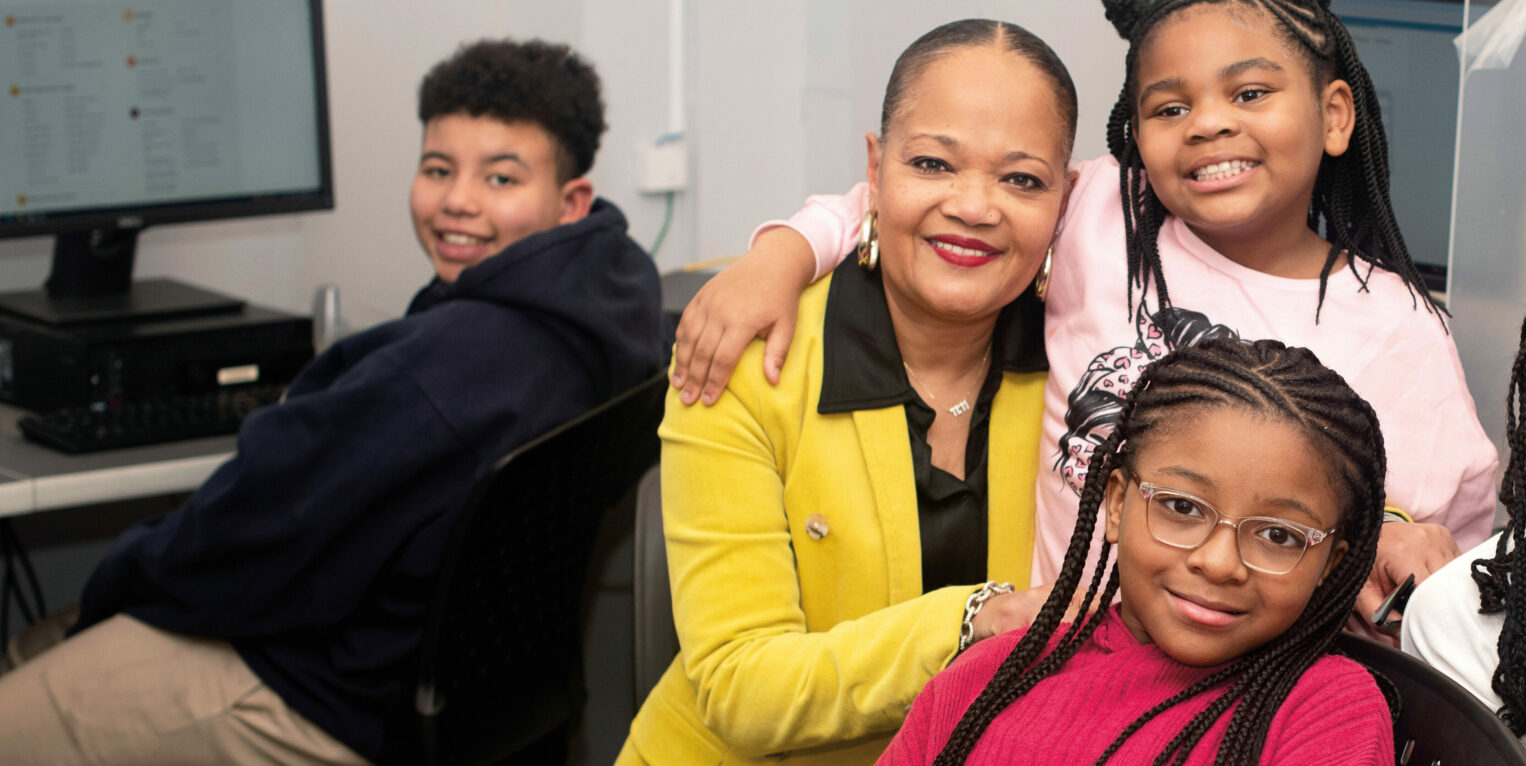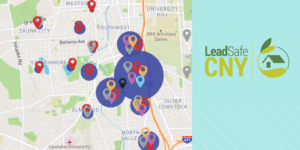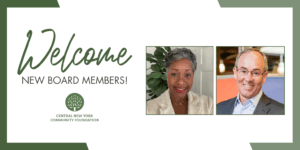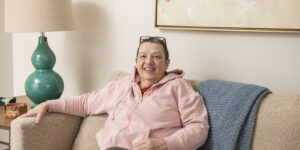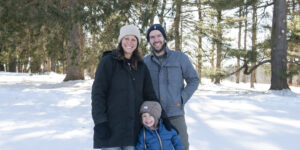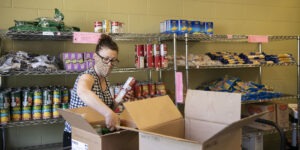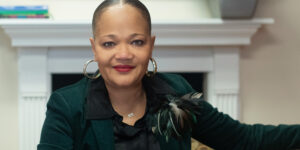In December 2023, our board of directors announced that Melanie Littlejohn was named the Community Foundation’s new president & CEO beginning March 1. As we look forward to ushering in a new chapter with Melanie at the helm, we asked her a few questions to help us get to know her better.

Please introduce yourself and give us a picture of the career path you have taken.
My career journey has been full of exciting twists and turns. And little did I know each bend in the road was preparing me for my next chapter. I grew up in Jamaica, Queens, as the oldest of 25. Yes, 25! I have one biological brother and 24 foster-love sisters. I graduated from SUNY Stony Brook with a degree in liberal arts. Following graduation, I started a career in international banking in the Financial District, then moved to Rochester, where my career took another turn. Unable to find a similar job, I found purpose-led work at one of the oldest civil rights organizations in the country — the Urban League. Within a few years, I relocated to Syracuse, where I worked for and subsequently led Urban League’s Onondaga County affiliate.
During my tenure with the League, I had the wonderful opportunity to work with people from all facets of our community, including Niagara Mohawk, now National Grid. Niagara Mohawk was starting new initiatives focused on diversity and asked me to join the team to lead the efforts. I am grateful for the inspirational leaders who encouraged me to pursue my MBA at Syracuse University while working full time.
While serving in many roles across National Grid over close to 30 years, I took part in extensive regional and global travel. I decided recently that it was time to come home and serve the community that has been good to me and my family. Shortly after I reached that decision, I learned about the president and CEO position at the Community Foundation. I was very familiar with the organization and its impact as a former chair and board member. Deciding to submit my name for consideration was one of the best decisions of my career.
Why did this new opportunity spark your interest?
I felt a calling to lead this organization not only because of my deep respect for the work done by the staff, board, nonprofit partners and donors, but also because the region is experiencing a transformative moment of growth. This community is redesigning itself, and it feels like an honor to be part of this critical time that will have generational impact on its residents.
We as a community have one chance to get this right. The Community Foundation can play a pivotal role in partnerships that will create a more equitable, resilient and sustainable community for all. I often think of my grandchildren, Kenzo and Sage, and of all children who I claim as my own. They deserve a world, a region, a community and a neighborhood that offers them the best of everything. A place that will embrace, protect and nurture them to do big and great things in this world. A place that creates opportunities and removes barriers, a place that loves them unconditionally and without wavering. They are my “why.”
While at National Grid, you developed and led the company’s corporate social responsibility program, which focuses on neighborhood revitalization, environmental justice, social equity and workforce development. What strategies did you find most successful? What lessons did you learn that you think will benefit your new role?
I had the wonderful opportunity during my career at National Grid to develop the organization’s community engagement framework. It was some of our most powerful and impactful work. The strategy we employed to create the framework was simple: Listen to learn what was important to communities. We were intentional to not project our goals or assume we knew what was best for a community. We respected the views and feedback from people who entrusted us to serve. Our commitment was to be flexible, present, reliable and consistent. We set the standard that we would do what we say — not once but always. Most importantly, we committed to being open and working without judgment. We adopted the philosophy, “being of service is at the heart of what we do.” Doing the right thing for the right reasons and ensuring that no community was left behind was the expectation the team set for itself and remained committed to.
In addition to your professional roles, you have also volunteered for and sat on the boards and committees of many local nonprofit organizations. Where do you think your heart of service comes from?
I am committed to this place I call home and I want to leave the world just a little better than I found it. I am fortunate that I grew up with the best examples of what it means to be of service to others. My parents are my heroes. They gave unselfishly to others, whether it be my sisters, neighbors, family or general community; they have always been there to support, guide and love. My parents never talked about service. To them, it was just what you did. These lessons have been engrained in my soul. I was also lucky to marry into a family that holds the same belief. My sister and brother-in-law — Linda Littlejohn and Langston McKinney — have poured their hearts into this community by committing to elevate the lives and

stories of the historically marginalized. My family has taught me how to give my full self in support of others. I am sure my grandparents and mom are smiling down on me as they see that I have landed in a place that feels like home.
You have lived and worked in Central New York for a long time. What do you see as the region’s greatest opportunities and needs?
I think the region’s needs are sadly the same as they have been for several decades. What is different is the level of severity. The gaps have significantly widened in education, housing, child and healthcare, workforce participation and development, wealth, business development and equity. Although the number of those facing challenges in our community has grown, what has changed is our acknowledgment that the issues exist and our tenacity to put our words to action. The table has been set for us to lean in as a community. We have acknowledged that the time is now. We are focused on collaboration and most importantly we know this moment will take compassion and a healthy dose of courage. I am hopeful for the future.
Why do you think charitable giving is so important in this moment in history?
I believe charitable giving has always been important. However, what is more pronounced now than ever is that love, respect and value for humanity must underscore all that we do. We must all build thriving communities, because in the tradition of my family, your neighborhood is my neighborhood; your child is my child; your home is my home; your pain is my pain; and when those who are most in need no longer own that title, then we all succeed. Yes, we all succeed, we all succeed.
